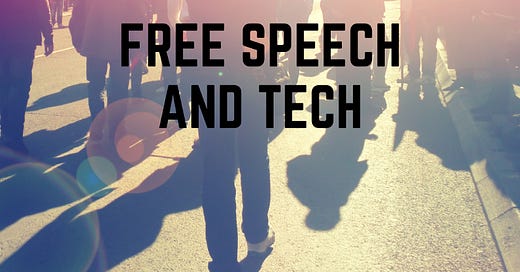Where to after Analytica?
I must admit, I rarely, if ever, use Facebook. The interface has always left me a bit cold. Twitter is obvious and intuitive and despite…
I must admit, I rarely, if ever, use Facebook. The interface has always left me a bit cold. Twitter is obvious and intuitive and despite the trolls and nastiness — and emerging political correctness of the Twitter overseers — it’s still functioning,
But there was always something fishy about the Facebook/Cambridge Analytica vendetta. It just didn’t seem right. Despite the protestations of Carole Cadwalladr and her ilk, I was never convinced the British electorate was so fickle, so unthinking, so gullible, as to base their voting on a few adverts placed on Facebook. Advertising is a choice thing, and we can choose the option, and mostly accept, to ignore the mass of junk that assaults our eyes when we visit a website. Facebook, after all, is just another website with dodgy content created by other members most of whom, apparently, missed grammar class. And dodgy content extends to advertisers across the political morass.
And I feel just a little vindicated when I hear that after a three year probe into the matter that it has been adjudged by the UK’s Information Commissioner that Cambridge Analytica was not involved in the EU Referendum. It adopted some seriously dodgy practices and seemed intent on making its practices even more dodgy by its plans to go offshore. But the great conspiracy, propounded by so many journalists and commentators was, based on the judgement, abject nonsense.
This does nothing to remove the indignant, hectoring rants that we were subjected to in the lead-up to and after the Brexit vote. I recall one conference, held about a year ago (when real conferences were a thing), when we had to listen to a litany of crazy social manipulation conspiracy theories from a so-called titan of the tech industry before we were allowed to get to the real content, with more interesting, more informed and more thinking speakers.
But that was then and this is now. Enter Covid.
Regardless of what certain public health decision makers would like us to think, there is a difference of opinion in terms of the appropriate public response to the crisis. Lockdown, back in March, met with public approval. But there is growing disquiet — in the UK and the USA and countries in mainland Europe — that killing the economy, destroying social interaction, and defining a new normal that involves ignoring all other forms of ill-health other than Covid, seems to be a step too far. Especially now that we know so much more about this waning infection.
It’s for that reason that the apparent disappearance of a link to ‘Great Barrington Declaration’ (GBD) on Google seemed very, very odd. The declaration and arguments behind GBD essentially state the case for herd immunity and shielding the vulnerable from Covid. It’s the work of three very eminent scientists and it represents an alternative view to the consensus position of many Western governments — that lockdowns and restrictions in personal liberty should be the default policy response.
It’s not that Google hadn’t indexed the search term or didn’t provide results. But a link to the site — that calls for signatures of support — was missing from Google results for quite some time (at time of writing, in the UK, it seems to have been reinstated). Meanwhile, while it was missing on Google, it was the number one listing on DuckDuckGo and other independent search engines. Google’s attempts at an explanation were not exactly convincing.
Clearly the issue here is freedom of speech. When governments can blanket advertise across digital platforms it seems a little unfair when an alternative view just isn’t given a fair opportunity to flourish — especially when that alternative view is articulate and backed up with science (even if it’s the type of science about which some governments would prefer not to hear).
There are, of course, parallels with the “Brexiteers rigged Facebook” hysteria. The Brexit campaign was the underdog throughout the lead-up to the referendum vote in 2016. The BBC, President Obama, the CBI (the big business membership organisation), and pretty much the entire British establishment, railed against the leave argument and campaigners. The appearance of a few pro-leave adverts on Facebook caused near apoplexy. And Leave won. Hence the howls of foul-play even though it was the underdog that won. And then the demands for another vote, another referendum, started.
The technology industry must learn the lessons from this. There is a clear attempt to politicise tech and the demands clearly come from the same quarters that demanded that Facebook shouldn’t run ads remain campaigners didn’t like and that the Great Barrington Declaration shouldn’t be given air-time or digital prominence. The same groups also demand that history be re-written and that statues be torn down and that certain books should be excised from the curriculum if they contain forms of words that don’t correspond to new-variant woke-speak.
The big question is whether big tech, that’s largely sustained by advertising, is in the best position to defend free speech — even when the free speech is articulate, informed and measured. Time will tell but the signs aren’t good.





